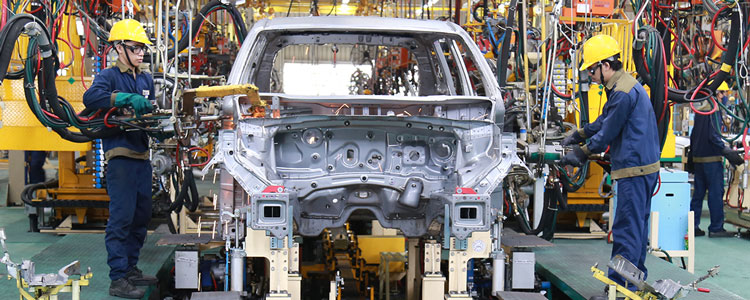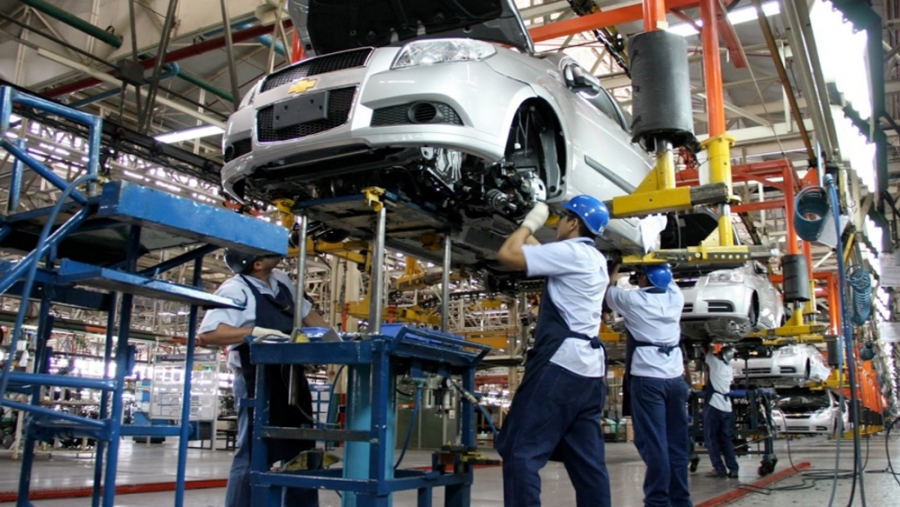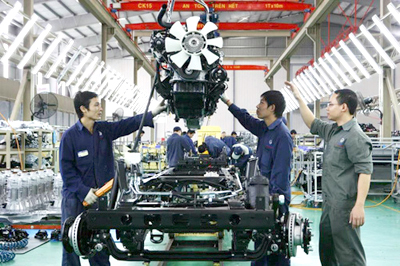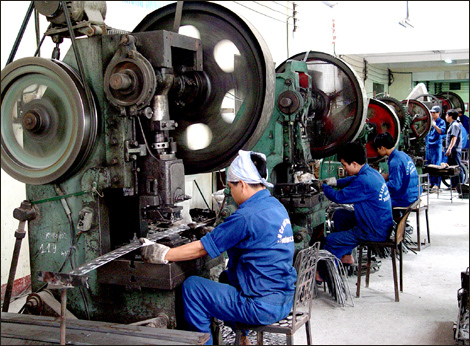Vietnam’s Circular 45: Regulations regarding the skills in the vocational field of chemical engineering at the intermediate level
Recently, the Ministry of Labor, War Invalids and Social Affairs of Vietnam issued Circular No. 45/2018/TT-BLDTBXH regulating the minimum knowledge requirements and capacity standards that learners must achieve upon graduating from intermediate and college levels in the fields of architectural technology, construction works, mechanics, electricity, electronics, telecommunications, and chemistry.

Circular No. 45/2018/TT-BLDTBXH of the Ministry of Labor, War Invalids and Social Affairs of Vietnam specifies the required skills that learners should acquire upon graduation from the vocational field of chemical engineering at the college and intermediate levels as follows:
- Being able to take basic first aid for chemical accidents; recognizing and warning of potential chemical accidents to prevent accidents for himself/herself and others.
- Performing proper maintenance and hygiene of chemical tools and equipment; monitoring maintenance work and evaluating the cleanliness and contamination levels of tools; calibrating equipment such as pH meters and scales; setting equipment parameters.
- Being able to prevent and respond to basic chemical incidents and explosions; being able to propose preventive measures for chemical incidents.
- Being able to write basic chemical reaction equations and explain the nature of reactions.
- Being able to Develop appropriate plans for the use and storage of chemicals in accordance with the Chemical Law and workplace regulations.
- Being able to calculate and prepare various types of chemical solutions with different concentrations, ranging from simple to complex, such as molar concentration, percentage concentration, mg/L concentration, equivalent concentration, and other types of concentration.
- Being able to plan and execute proper procedures for sampling, processing, and preserving samples.
- Being able to handle data from basic to complex levels of analysis results, such as raw errors, mean values, standard deviations, method analysis errors, constructing calibration curves, and other data.
- Being able to utilize computer software applications in chemistry to process data and draw atomic and molecular structures.
- Following testing and production procedures correctly; being able to evaluate the reliability of data; being able to detect and rectify errors during testing and production processes.
- Being able to operate laboratory equipment such as pH meters, scales, drying cabinets, furnaces, molecular absorption spectrophotometers, atomic absorption spectrophotometers, chromatography equipment, and other chemical devices.
- Proposing measures and practicing resource conservation of chemicals, electricity, and water during work.
- Adhering to the requirements of the 5S and ISO processes in the laboratory; identifying areas where 5S and ISO are not implemented or implemented incorrectly, and proposing appropriate corrections and improvements.
- Being able to use information technology as regulated; exploiting, processing, and applying information technology in the specialized work of the field.
- Being able to use a foreign language, achieving level 2/6 in the Vietnamese Language Proficiency Framework; applying a foreign language in the specialized work of the field.
View more details at Circular No. 45/2018/TT-BLDTBXH of the Ministry of Labor, War Invalids and Social Affairs of Vietnam, effective from February 10, 2019.
Ty Na
- Key word:
- Circular No. 45/2018/TT-BLDTBXH
- Number of deputy directors of departments in Vietnam in accordance with Decree 45/2025/ND-CP
- Cases ineligible for pardon in Vietnam in 2025
- Decree 50/2025 amending Decree 151/2017 on the management of public assets in Vietnam
- Circular 07/2025 amending Circular 02/2022 on the Law on Environmental Protection in Vietnam
- Adjustment to the organizational structure of the Ministry of Health of Vietnam: Certain agencies are no longer listed in the organizational structure
- Vietnam aims to welcome 22-23 million international tourists in Vietnam in 2025
-

- Vietnam: Regulation on knowledge requirements ...
- 10:33, 07/01/2019
-

- Vietnam’s Circular 45: Regulations on the skills ...
- 15:15, 06/01/2019
-

- Vietnam: Regulations on the minimum knowledge ...
- 15:06, 06/01/2019
-

- Vietnam’s regulations on the minimum knowledge ...
- 15:00, 06/01/2019
-

- Vietnam’s Circular 45: Regulating 03 requirements ...
- 14:45, 06/01/2019
-

- Notable new policies of Vietnam effective as of ...
- 16:26, 11/04/2025
-
.Medium.png)
- Notable documents of Vietnam in the previous week ...
- 16:21, 11/04/2025
-
.Medium.png)
- Notable documents of Vietnam in the previous week ...
- 16:11, 02/04/2025
-
.Medium.png)
- Notable new policies of Vietnam to be effective ...
- 16:04, 02/04/2025
-
.Medium.png)
- Notable new policies of Vietnam effective from ...
- 14:51, 21/03/2025
 Article table of contents
Article table of contents
